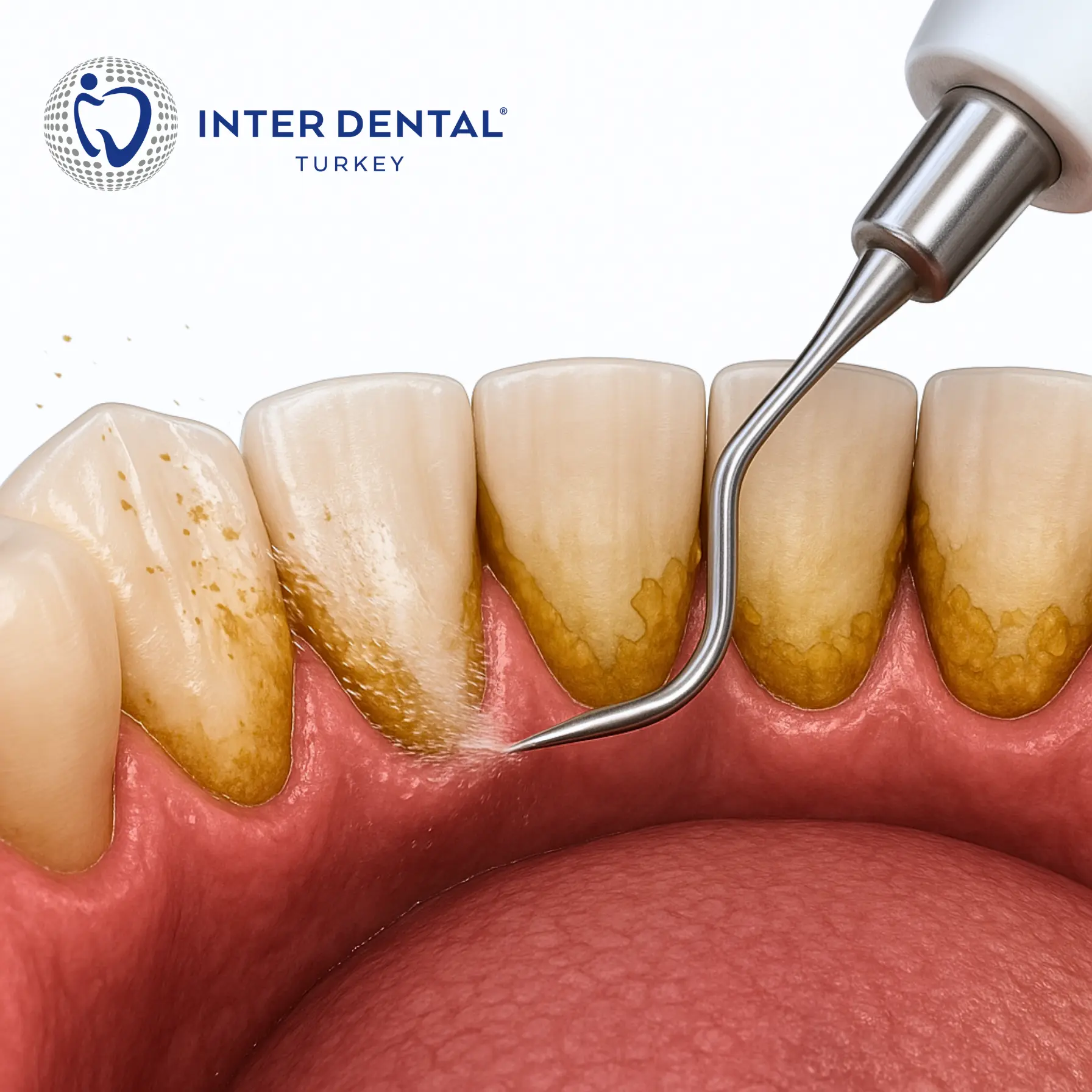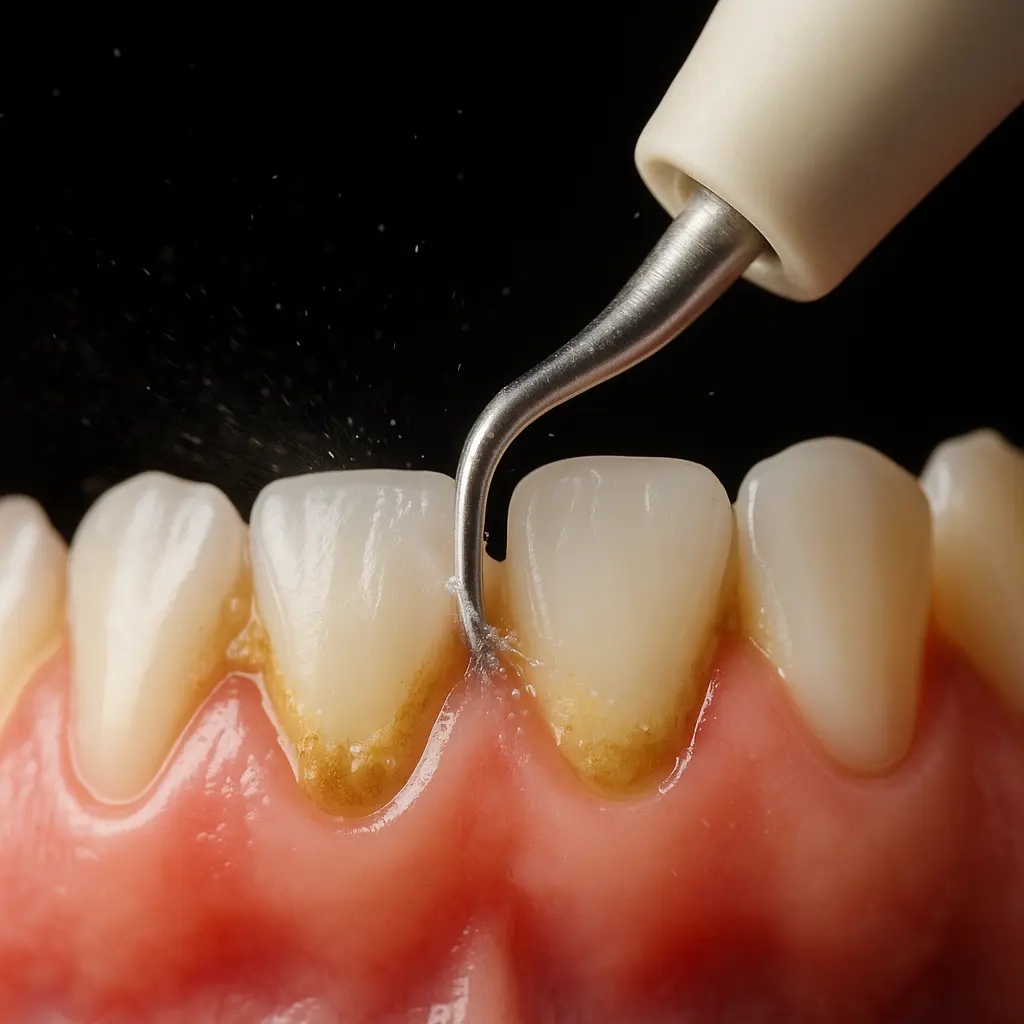- Side, Kemer Blv. No:24/A, 07330
- Manavgat, Antalya
- Türkiye
What Is Dental Scaling? Procedure, Benefits, and Aftercare

What Is Dental Scaling? Why It Matters for Your Oral Health
Maintaining oral health is more than just daily brushing and flossing. Over time, plaque that isn’t removed can harden into tartar (dental calculus), which cannot be eliminated with a regular toothbrush. Dental scaling, commonly known as tartar removal, is a professional cleaning procedure performed by a dentist or dental hygienist. But why is it so important, how is it done, and what are the benefits? Let’s explore.
What Is Dental Scaling?
Dental scaling is the process of removing hardened tartar deposits from the teeth and along the gum line. Unlike soft plaque, tartar is firmly attached to the enamel and requires specialized dental tools to be removed effectively. If left untreated, tartar can lead to gum inflammation, periodontal disease, and persistent bad breath.
How Is Dental Scaling Performed?
1.Ultrasonic Scaling
Dentists often use ultrasonic devices that vibrate at high frequency, breaking apart tartar while simultaneously spraying water to flush away debris.
2. Hand Instruments (Curettes)
For more stubborn areas, manual instruments called curettes are used to scrape away tartar.
3. Polishing (Prophylaxis/Polishing)
After scaling, the tooth surfaces are polished to make them smoother, reducing future plaque accumulation.
Benefits of Dental Scaling
Prevents Gum Disease:
Removes tartar that irritates gums and causes gingivitis.
Fresher Breath:
Helps eliminate bacteria responsible for bad breath.
Brighter Smile:
Improves the appearance of teeth by removing yellowish tartar.
Protects Oral Health:
Stops progression toward advanced periodontal disease.
How Often Should You Get Dental Scaling?
Most dentists recommend dental scaling every 6 months as part of routine dental check-ups. However, frequency may vary depending on your oral hygiene habits, diet, and genetic predisposition to tartar build-up. Some patients may require scaling every 3–4 months, especially if they are prone to gum disease.

FAQ – Frequently Asked Questions
1. Does dental scaling hurt?
Dental scaling is generally painless. Some patients may experience mild discomfort or sensitivity, especially if tartar buildup is heavy or gums are inflamed. Local anesthesia can be used in sensitive cases.
2. Can tartar build up again after scaling?
Yes. Tartar can return if proper oral hygiene is not maintained. Regular brushing, flossing, and routine dental visits are essential to prevent re-accumulation.
3. Is tooth sensitivity normal after scaling?
Yes. Temporary sensitivity to hot, cold, or sweet foods is common for a few days after scaling. This usually subsides as the gums heal and the teeth adjust.
